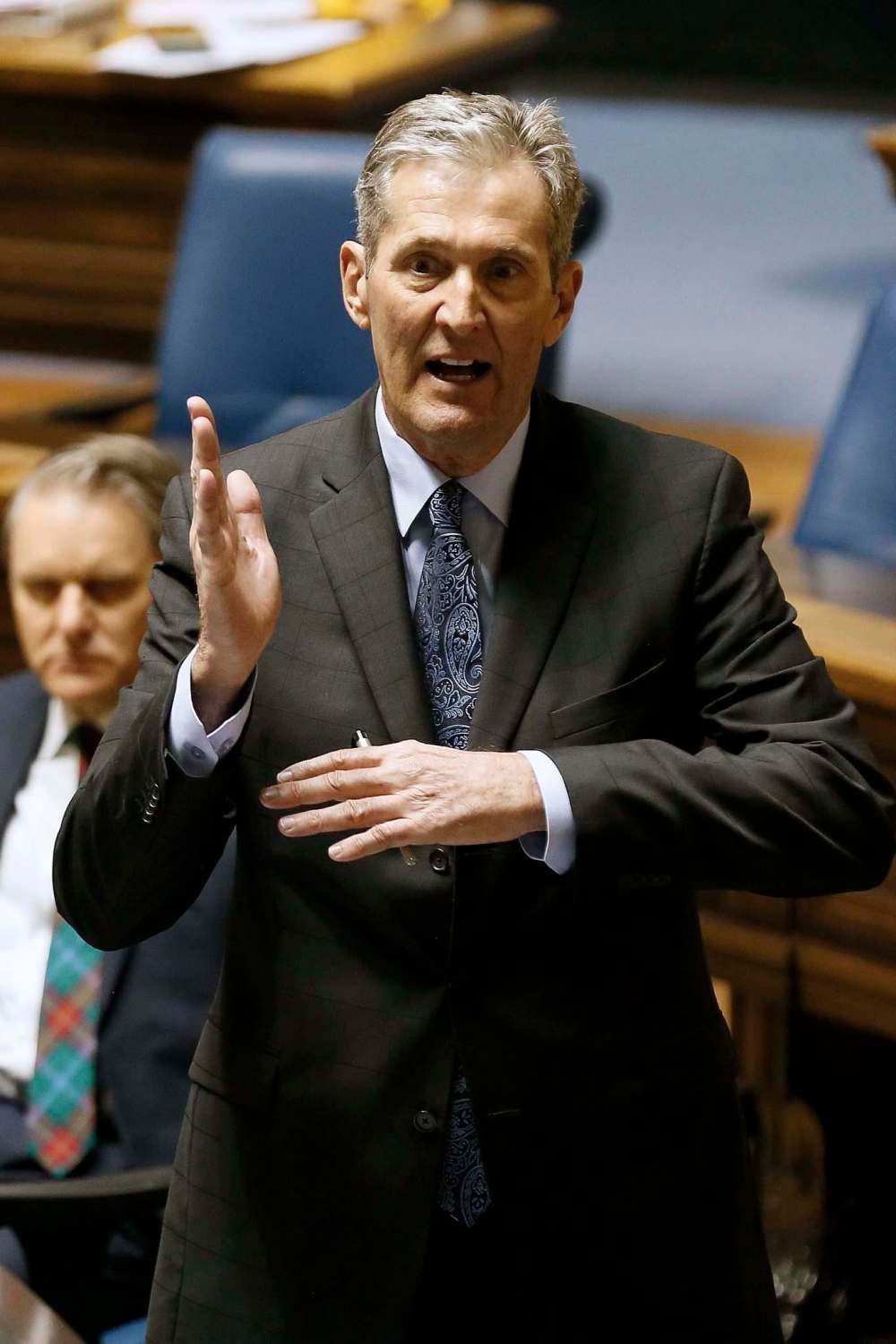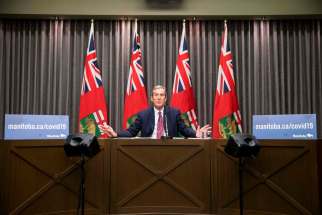Chorus of criticism gaining voices daily
Read this article for free:
or
Already have an account? Log in here »
To continue reading, please subscribe:
Monthly Digital Subscription
$0 for the first 4 weeks*
- Enjoy unlimited reading on winnipegfreepress.com
- Read the E-Edition, our digital replica newspaper
- Access News Break, our award-winning app
- Play interactive puzzles
*No charge for 4 weeks then price increases to the regular rate of $19.00 plus GST every four weeks. Offer available to new and qualified returning subscribers only. Cancel any time.
Monthly Digital Subscription
$4.75/week*
- Enjoy unlimited reading on winnipegfreepress.com
- Read the E-Edition, our digital replica newspaper
- Access News Break, our award-winning app
- Play interactive puzzles
*Billed as $19 plus GST every four weeks. Cancel any time.
To continue reading, please subscribe:
Add Free Press access to your Brandon Sun subscription for only an additional
$1 for the first 4 weeks*
*Your next subscription payment will increase by $1.00 and you will be charged $16.99 plus GST for four weeks. After four weeks, your payment will increase to $23.99 plus GST every four weeks.
Read unlimited articles for free today:
or
Already have an account? Log in here »
Hey there, time traveller!
This article was published 15/05/2020 (2033 days ago), so information in it may no longer be current.
The most effective political leaders are those who surround themselves with smart people to help them make good decisions. Politicians with their hands on the levers of government wield them most successfully when they demonstrate that they have taken all sides of an issue into consideration before taking action.
Although the inner workings of Premier Brian Pallister’s office have always been shrouded from public view, it is widely acknowledged — including by many current and former Tories — that he is a man who neither seeks nor accepts much in the way of counsel. His style of leadership seems to involve dictating major decisions to staff and fellow elected Tories, and then waiting for everyone to execute that which he has decided.
In good times, that is a questionable way to run a government. In the grips of a challenge such as the COVID-19 pandemic, it risks becoming a dangerous and potentially destructive strategy.
Case in point: when Mr. Pallister confirmed he wanted a three per cent cut in operating budgets for every entity that is either directly or indirectly funded by his government — school divisions, post-secondary institutions, health authorities, Crown corporations and government departments — it was observed by many outside government that this is the wrong time for additional austerity.
The Free Press last week published a summary of opinions from nearly a dozen groups and individuals who collectively have panned Mr. Pallister’s ramped-up austerity measures. Yes, the deficit is growing, but in this extremely fragile economy, cutting funding to outside organizations or laying off civil servants will — in the opinion of bank and think-tank economists, social-policy experts and other commentators — only make a bad situation worse.
Mr. Pallister seems unmoved by the growing opposition. In fact, one might even be inclined to conclude that with each additional dissenting voice, he becomes more committed to his strategy. Although confidence is an important leadership quality, so too is open-mindedness. Manitoba’s premier appears to have cut himself off from any contrary or alternative theories on how to weather the pandemic storm.

In many ways, this is not unexpected. Throughout his public life, Mr. Pallister has been perceived — by friends and foe alike — as a solitary figure who has battled through challenges with a combination of unwavering resolve and steely resilience. Admirable qualities both, right up until the point they become intransigence.
If Mr. Pallister cannot be convinced that his single-minded commitment to austerity is negatively affecting the province as a whole, perhaps he might consider the damage it is doing to his own political brand and that of his party.
As he continues to demand and defend layoffs and spending cuts, the coalition of critics is growing, well outside the roster of usual suspects who routinely contest the policies of a Progressive Conservative government. Opinion leaders in business and financial institutions are adding their voices to the critical chorus, along with economists from across the political spectrum. Concern and criticism are also growing in the public at large.
There is always a cost associated with austerity, and Mr. Pallister might eventually find that focusing on frugality in a time of crisis has cost his party the support necessary to remain in government. If he listens hard, there are no doubt people close to him now who are willing to warn of such a danger. He should listen to them.





